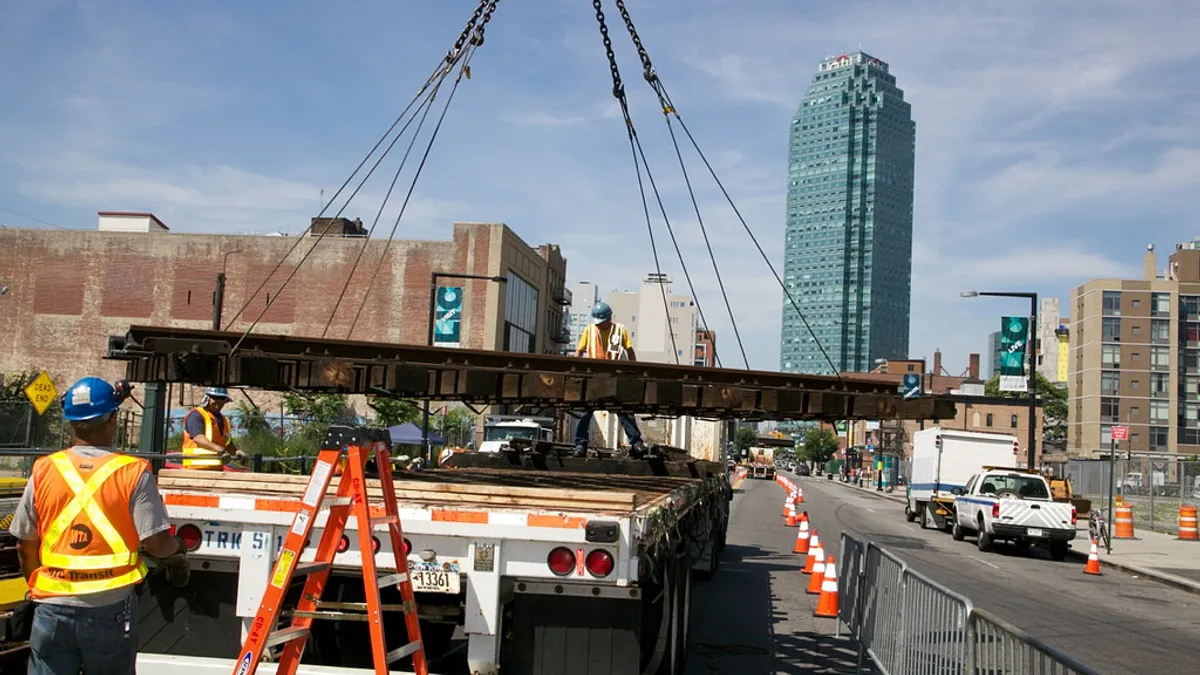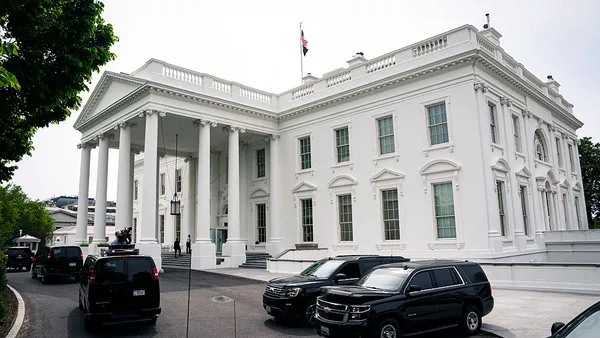Dive Brief:
- Major construction industry associations have come out swinging against a new Department of Labor rule that they say could unfairly ban contractors from being able to bid on or perform government work. The new provision takes effect on Oct. 25, with the rollout staggered in phases to give firms time to understand and comply with the changes.
- Leadership from both the Associated General Contractors of America and the Associated Builders and Contractors said that provisions of the Fair Pay and Safe Workplaces final rule — also known as the "blacklisting" rule — are vague and allow federal officials to arbitrarily target firms for punishment.
- In opposition to some construction association sentiment, the AFL-CIO, which represents 56 trade unions, said it "applauds the Administration" for enacting a rule that it said would make sure federal contractors "obey the law and respect their employees’ rights." The rule requires that contractors seeking federal work disclose labor law violations in the last three years.
Dive Insight:
AGC CEO Stephen E. Sandher said in a release that along with the rule's unfair procedures, it will also keep smaller firms — scared away by the potential risks and increased costs of compliance — from seeking out federal contracts. Sandherr added that the AGC has always championed honest contractors, and it believes the percentage of those working outside federal law is very small.
The ABC had similar comments but added that, under the rule, employees could lose their jobs as a result of wrongful action against contractors and said the entire federal procurement process could be jeopardized along the way. ABC Vice President of Regulatory, Labor & State Affairs Ben Brubeck also said the final rule ignores industry input submitted during rule-development comment periods.
Industry groups will likely attempt to block implementation of the bill via legal challenges, just as they have done with other federal rules they find overreaching and unfair. In April, eight construction groups filed a petition requesting that the U.S. Court of Appeals for the Fifth Circuit review the Occupational Safety and Health Administration's new silica rule. The ABC was part of that action and said that the rule represented a "fundamental misunderstanding of the real world of construction." That regulation went into effect in June.
Industry groups have seen more success preventing the implementation of another OSHA regulation, the "anti-retaliation" provision of its new electronic record-keeping rule. After trade groups filed a legal challenge to block the provision, which limits post-accident drug and alcohol testing, OSHA decided to hold off on enforcing it until the agency provides more educational materials and outreach on the topic. OSHA maintains that if employees are forced to take automatic drug and alcohol tests post-injury, it could keep them from reporting workplace accidents or injuries.












